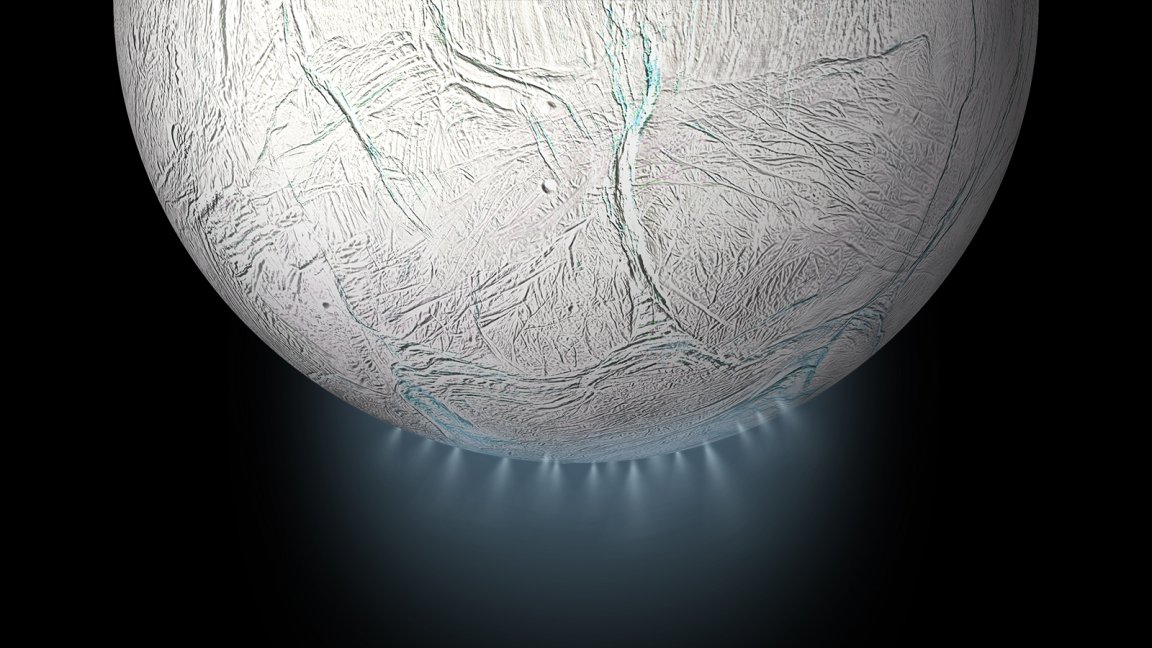
Moon Life
New evidence has emerged supporting the possibility that Saturn’s moon Enceladus has the potential to host life. Not only does this evidence point to the ability of the moon to harbor life, but that life could have also evolved into complex organisms.
NASA previously announced that Enceladus has many of the “ingredients needed for a habitable environment.” A new study published in Nature Astronomy explains exactly how the moon can sustain a global salty ocean under its icy crust, and how such an environment can be conducive to life developing and thriving.
Researchers have taken the Cassini mission’s observations of Enceladus and attempted to match them with computer models depicting various possibilities for how such an ocean could form. The researchers concluded that Enceladus’s rocky core is porous, water is heated while traveling through the core and is expelled through narrow openings in the crust. This process forms hot water jets, which are especially prevalent in the moon’s southern polar region.

Chemical Reactions
Studying these hydrothermal vents could be the best bet for determining whether Enceladus could foster life. Lead author Gaël Choblet, from the French National Center for Scientific Research, spoke with Newsweek, saying, “If a new theory published last year is correct, then powerful hydrothermal activity could have been occurring since the formation of the moon, possibly as much as the age of the solar system.” Choblet was referring to a study pertaining to how the moons of Saturn could be heating.
Furthermore, the heating provides an adequate timeline for life to develop. David A Rothery, professor of Planetary Geosciences at the Open University, U.K. explained, “Chemical reactions are going on even today. If it’s going on today it could have been going on a billion years into the past, and that’s long enough for life to get started—and to have evolved beyond the very most basic stages. It could be quite a complex microbial community down there and we’d love to study it.”
Studying how life began and evolved on other planets could provide further insight into how life on our planet began. This is not by any means a confirmation of extraterrestrial life on Enceladus, or any other celestial body, yet it is compelling evidence in support of further research into the very real possibility.